- Home
- Harry Harrison
Stars and Stripes Triumphant sas-3 Page 10
Stars and Stripes Triumphant sas-3 Read online
Page 10
“I can but advise your representatives to try harder,” Judah P. Benjamin said. After being defeated in the presidential election, he had graciously agreed to return to his cabinet post as Secretary for the South. “Every day I receive more and more complaints from the cotton planters. They cannot depend on the domestic market alone, but must look overseas to ensure their profits. The British seizure of so many cotton ships is driving them to bankruptcy.”
There were nods of understanding at this unhappy state. Then, before anyone else could speak, the door opened and John Hay, Secretary to the President, slipped in. He spoke softly to Lincoln, who nodded.
“I understand,” he said. “Tarry a moment, John, while I put this to the cabinet. Gentlemen, it has been brought to my attention that the President of Ireland is waiting below with the Irish ambassador. He contacted me last night, soon after his arrival, and requested a meeting. I informed him about this cabinet session and asked him to join us. I hope you will agree that what he has to say is of the utmost importance to you all assembled here.”
“It is indeed,” Seward said. “We must have him in.”
Hay went out and the cabinet waited in silence until he returned. When he came back he ushered in two men in dark morning suits. Their mien echoed the color of their garb, for their faces expressed nothing but unhappiness — bordering on despair.
“President Rossa,” John Hay said, and the President nodded. “With him is Ambassador O’Brin.”
“This is a great pleasure,” Lincoln said. “John, do bring over those chairs. Jeremiah, when I saw you last it was during a time of great difficulty.”
“Unhappily, Abraham, the difficulties are still there — and if anything, they have grown, until I fear that my poor country is at the mercy of some biblical plague.”
“And I can put a name to that plague,” the Irish ambassador said. “I beg you, excuse me for speaking out like that, but the words are forced from my soul. The British — they are the plague that is destroying our poor country.”
“They are indeed,” Rossa said, nodding agreement. “How fondly I remember those halcyon days when President Lincoln attended my inauguration. What hope was in the air! We had just suffered the agonies of war, but none of us regretted the sacrifice. Ireland was free, free after all those centuries of oppression. You could taste the freedom in the air, hear it in the sound of the church bells. We were at last a single country, from Belfast in the north to Cork in the south. United and free to shape our own destiny.”
Rossa looked around at the listening cabinet members, his eyes deep-set and smeared dark with despair.
“How quickly it was all to end. Instead of rebuilding and reuniting Ireland, we are being forced once more to defend her. Our fishermen see their boats burned. Our seaside towns and cities are attacked and pillaged. While Irish men and women — and children! — are seized from their homes in England and imprisoned in the vileness of the concentration camps. What can be done? What can be done?”
“President Rossa — we have been asking ourselves the same question,” Seward said. “I feel that my department of state is failing the American people. Despite our efforts at finding a peaceful conclusion, our cotton ships are still being seized at sea.”
“Perhaps there is only one answer,” Rossa said in a voice laden with despair. “Perhaps there is indeed no peaceful solution. Perhaps we must do again the terrible and the threatening. I see no other possible conclusion, given the facts as we know them.” He drew himself up and looked around at the assembled cabinet.
“Perhaps we must do as we did — as you did — before. Call on the British one last time to cease and desist their maraudings. Put the weight of history upon them. Tell them they must stop at once. For if they do not, we will come to but one conclusion. That they have declared war upon us. If that is what they decide — so be it. We are a smaller country and a weaker one. But there is not a single person in our land who will not agree that if we are forced to the decision, the Republic of Ireland will declare war upon Great Britain.
“If we do that, will you, the country of democracy and freedom, join us in this noble endeavor?
“Will you join us in a just war against Great Britain?”
TRAPPED!
The Aurora sighted the bar light vessel first as they entered Liverpool Bay. In the early afternoon they continued on through the jumble of tide-ripped water that marked the entrance to the Mersey estuary. A summer storm had been building up all day. Blowing in from the Atlantic, it had grown in strength while it was crossing Ireland, and was now churning up the Irish Sea. Count Korzhenevski and General Sherman were on deck, wearing oilskins to give them some protection from the driving rain. The low-lying shore on both sides of the river was barely visible through the mist and rain.
“Should we drop anchor and wait for the storm to clear?” the Count asked.
“Only if you feel it necessary. I don’t want to stay in this area very long. I just want to see the approaches to Liverpool and its relation to the river.”
“That will be easy enough to do, rain or no. We have come this far and we are reaching the end of our mission. Yes, let us do it — then leave these waters. I am sure that we will all be immensely relieved once we are done with all this.”
“I am in complete agreement. We shall press on.”
The wind abated somewhat when they left the open sea for the shallower waters of the landlocked estuary, but the rain continued to fall relentlessly. Despite this they could easily find their way. The channel was well marked by buoys, and with the incoming tide behind them, the little steam yacht made very good time. They passed smaller fishing boats under full sail, then an immense side-wheel freighter thrashing its way downriver to the sea. By late afternoon the church towers of Liverpool were visible ahead. The Aurora swung closer to the riverbank as the first docks loomed up out of the rain. In the lounge belowdecks, driven there by the rain, Commander Wilson sketched the shoreline as best he could, looking out through a porthole and muttering imprecations at the filthy weather.
The river was narrowing and the little ship stayed in the channel in the center, letting the incoming tide carry them upstream.
“I think that dock we passed back there appears to be the final one,” Sherman said.
“I am sure of it. Any vessel with a draft deeper than ours would be grounding itself about now.”
“Good. I think that we have seen enough — and I don’t want to place our faithful vessel in any more danger. We can go back if you wish to.”
“Wish to! I yearn to.” The Count shouted orders up to the bridge and the bow began to swing about. Despite having to breast the incoming tide, they went downriver at a steady pace. They were making good progress when Sherman and the Count went below. As they shook themselves out of their oilskins, the Count called out to the steward, who, moments later, came in with glasses and a bottle of cognac on a tray. The Count poured, then handed one brimming glass to the general.
“Shall we drink to a mission successfully accomplished?”
“A noble idea. Then we can change into some dry clothing.”
The deck door opened to admit a spray of rain, and the deck officer, Lieutenant Chikhachev, pushed in. He said something in rapid Russian and the Count cursed out loud and began to pull his oilskins on.
“There is a large ship ahead, coming upstream toward us,” he said.
“We’ve seen others,” Sherman said.
“But none like this. It has guns. It is a ship of war.”
Sherman dressed hurriedly and joined him on deck. The rain was ceasing and the ironclad could be clearly seen coming upstream toward Liverpool. The two-gun turret in the bow was pointed ominously in their direction.
The Count called out a command in Russian. “I ordered us closer to the shore,” he said, translating. “I want to give them as much room as possible.”
“I’m sure it is just a chance meeting,” Sherman said.
As he finished speakin
g, the gun turret slowly swung in their direction, and for the first time they could see the ship’s name clearly.
“Defender!” Sherman said. “Wasn’t that the name of the ship in Plymouth — the one that the officer in the train said he was stationed on?”
The Count had no time to answer him — but his shouted commands were answer enough. Clouds of smoke poured from the yacht’s funnel as the engine raced up to full speed. At the same time they heeled sharply as they came about in the tightest turn possible. Then their stern was to the battleship and they were at full steam back up the river.
“It was that damnable little swine, Archie Fowler,” Korzhenevski growled out angrily. “We should have killed him when we were alone with him on the train.”
“I am afraid I do not understand why.”
“In hindsight it is all too transparently clear. After leaving us, he returned to his ship — where he bragged about meeting me. You could tell that he is a great snob. Someone there was at the dinner in Greenwich — or had heard about it. Whatever it was, we know that the British have no love for the Russians and would certainly resent our snooping around their shores. Once their suspicions were aroused, the Aurora would certainly have been easy enough to follow, since we have made no secret of our presence in these waters—”
He broke off as one of the guns in the forward turret of the ironclad fired. An instant later a great tower of water sprang up off their starboard bow. Then the second gun fired and a shell hit the water to port.
“Bracketed!” Sherman called out. “I’m glad they have no third gun.”
The distance between the two ships grew larger, since the smaller vessel had reached its top speed more quickly. But Defender’s engines were soon turning over at their maximum, and while she did not gain on them, she did not fall farther astern.
“They’ve stopped firing,” Sherman said.
“They don’t have to shoot. There is no way we can escape them. We are in a bottle and they are the cork.”
“What can we do?”
“Very little for the moment other than stay ahead of them.” The Count looked up at the darkening sky and the driving rain. “The tide will turn in about an hour; that will be high water.”
“And then…”
“We will be in the hands of the gods,” the Count said with dark Russian fatalism.
They plowed upriver, with their black iron nemesis steaming up steadily behind them. Liverpool swam out of the rain to port and moved swiftly by. Then they passed the last dock and the river narrowed.
“They’re slowing, dropping back!” Sherman called out.
“They must — they can’t risk running aground. And they know well enough that they have us in a trap.”
HMS Defender surged to a stop in the river. They watched her grow smaller until a bend in the Mersey cut her off from sight.
“Do we stop, too?” Sherman asked.
“No. We keep going. They might send boats after us. They could also contact the shore, have the army come trap us. And this is a trap.” The Count looked up at the sky, then at his watch. “It won’t be dark for hours yet. Damn these long summer nights.” He hammered his fist angrily on the rail. “We must do something, not just stand and shiver like a rabbit in a snare.” He looked down at the muddy river water, then at his watch again. “We’ll wait until the tide turns, no longer than that. It won’t be too long now. Then we will act.”
“What can we do?”
The Count smiled widely, almost baring his teeth. “Why then, my dear general, we head downstream at top speed. That, and the outgoing tide, will mean that we will be exposed to their gunfire for the smallest amount of time. Hopefully we can get by the enemy ship and show her our tail. After that we must trust only to chance and, hopefully, we will have an inordinate amount of luck! If you are a religious man, you might pray for divine intercession. God knows we could use it.”
The Aurora continued slowly upriver until the Count became concerned about the Mersey’s depth; they dropped anchor.
By this time Fox and Wilson were on deck as well, ignoring the rain, and Sherman explained what was happening. Little was said — little could be said. They were safe for the moment. The Count went to the bow and stood, staring down at the river, looking at the debris floating by.
“It will be some time before the tide changes. Let us get out of the rain and into some dry clothes.”
In his cabin General Sherman pulled off his clothing and toweled himself dry. He dressed again, scarcely aware of what he was doing because he was deep in thought. This was a dangerous situation. When he rejoined the others in the main cabin, the Count was just doling out what appeared to be water tumblers of brandy. Sherman accepted one and sipped at it.
“I suppose that there is nothing we can do, other than wait for the tide to turn.”
“Nothing,” the Count said grimly, draining half of his glass. “If anyone, other than myself, could pass as an Englishman, I would put him ashore with all the maps and charts and have him take them to a neutral country. But there is no one — and I cannot bring myself to desert my ship.”
“Should we destroy the charts?” Sherman asked.
The Count shook his head. “I think not. If the ship goes down — they go down with her. And if we do succeed in escaping — why, they will make all of our trials worth the while.” He finished his glass and put it down; the strong spirits did not seem to affect him in any way.
“Is the game worth the candle?” Wilson asked, depressed.
“It is!” Fox said, most firmly. “When this information is brought home, it will be beyond price — that I can assure you. Modern warfare has come to depend on military intelligence. Modern armies don’t just move forward until they meet the enemy, then do battle. Such tactics went out with Napoleon. General Sherman will tell you. The telegraph brings swift information to the general in the field. Trains bring the munitions and materials for support. Without informed intelligence the warring army is blind.”
“Mr. Fox is correct,” the Count said. “The game, my dear Wilson, is worth the candle.” He glanced up at the clock mounted on the bulkhead. “The tide should be turning soon.”
Unhappy at staying below, the Americans followed him up on deck. The rain had settled down to a steady drizzle. The Count walked to the rail and looked down at the river. Most of the drifting debris was just bobbing about now. Then, ever so slowly, a change began to take place. Instead of staying still, the leaves and branches began to drift downstream, faster and faster. The Count nodded with satisfaction and called an order out to the bridge. The anchor was raised and the engine came to life; the propeller began to turn.
“Gentleman, the die is cast. Only fate knows what will happen to us now.”
Smoke poured out the funnel as they worked up speed, moving so fast that the ship heeled over when they went around the first bend in the river. Faster and faster Aurora raced downstream toward her destiny.
Around the next bend they surged…
And there was Defender blocking the reach before them.
A CONVOY IN DANGER
“I’m sorry, Captain, but they are not answering my signals.”
A number of abrasive answers sprang to mind, but Captain Raphael Semmes controlled his tongue and just nodded. This shambles of a convoy could not be blamed on the signalman. Ever since they had left Mobile Bay, it had been one damned thing after another. Signaling was probably the worst part of the difficulty; the cotton ships misread his signals or ignored them. Or they asked them to be repeated over and over again. Not that their assignments were that complex. He simply wanted them to stay together, and not stray or fall behind.
And every dawn it was the same — they were all over the Atlantic, some even hull down on the horizon. So he had to round them up yet once again, signaling with angry hoots on USS Virginia’s steam whistle to get their attention. Herding them back into their stations, like a shepherd with wayward, stupid sheep.
And there w
as Dixie Belle again, the eternal miscreant. Fallen behind and ignoring all of his attempts at communication. The worst part was that she was a steamship, the only one in the five-ship convoy. A powered vessel that should be relied upon to keep position. While the white-sailed cotton clippers rode easily before the westerly wind, day after day the steamship kept falling behind. His biggest concern was always Dixie Belle.
“Hard aport, slow ahead,” he ordered the helmsman. “We’re going after her.”
Virginia’s wake cut a wide swath in the sea as she turned in her tracks and headed back toward the errant ship. This was a bad place for the convoy to start coming apart. The French coast was less than a hundred miles ahead — making this the hunting ground of the British war craft. They had seized too many American cotton ships here, which had necessitated the need for guarded convoys. Which were only as strong as their weakest link. His ironclad warship could offer protection only if the convoy stayed together.
Virginia turned again, this time to match the other ship’s course, slowed to stay abreast of her. Semmes raised the megaphone as they closed to within hailing distance — and strongly resisted the temptation to execrate the captain for ignoring his signals; this would be but wasted energy.
“Why have you slowed down?” he called out instead. He had to repeat his words when the other captain finally appeared on deck.
“A shaft bearing running hot. I’m going to have to stop the engine to replace it.”
Why was it running hot? Because of the lazy incompetence of an oiler, that was why. It took all Semmes’s strength of will not to curse the captain out for his crew’s slackness; this would avail nothing.

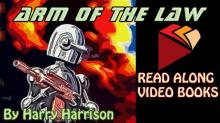 Arm of the Law
Arm of the Law The Velvet Glove
The Velvet Glove The K-Factor
The K-Factor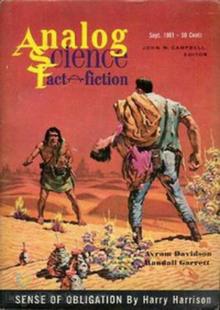 Sense of Obligation
Sense of Obligation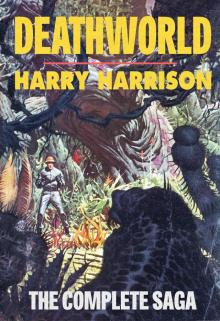 Deathworld: The Complete Saga
Deathworld: The Complete Saga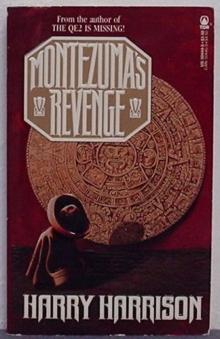 Montezuma's Revenge
Montezuma's Revenge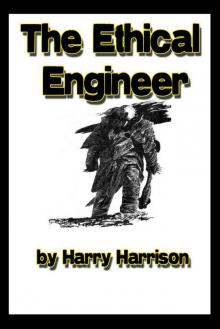 The Ethical Engineer
The Ethical Engineer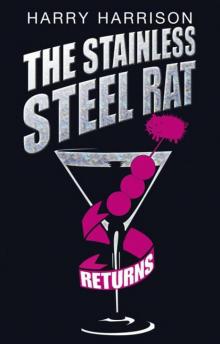 The Stainless Steel Rat Returns
The Stainless Steel Rat Returns The Misplaced Battleship
The Misplaced Battleship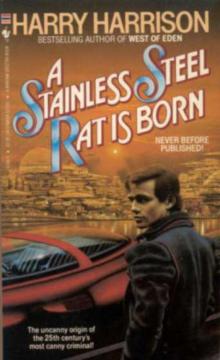 The Stainless Steel Rat is Born
The Stainless Steel Rat is Born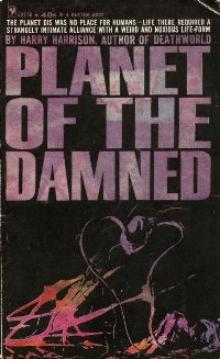 Planet of the Damned bb-1
Planet of the Damned bb-1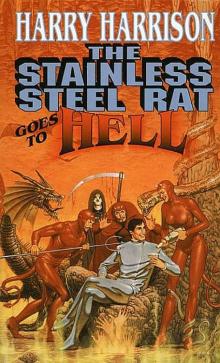 The Stainless Steel Rat Goes to Hell ssr-10
The Stainless Steel Rat Goes to Hell ssr-10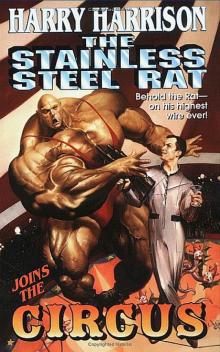 The Stainless Steel Rat Joins the Circus ssr-11
The Stainless Steel Rat Joins the Circus ssr-11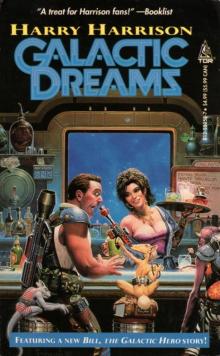 Galactic Dreams
Galactic Dreams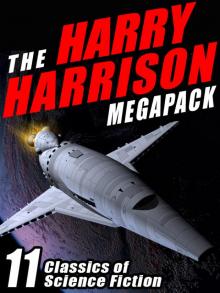 The Harry Harrison Megapack
The Harry Harrison Megapack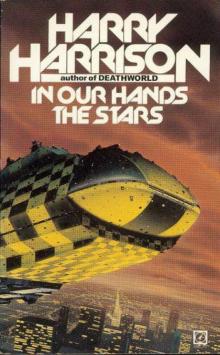 In Our Hands the Stars
In Our Hands the Stars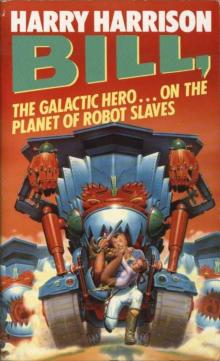 On the Planet of Robot Slaves
On the Planet of Robot Slaves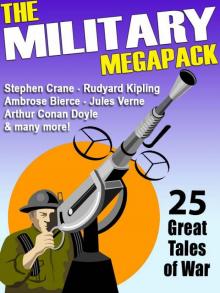 The Military Megapack
The Military Megapack Make Room! Make Room!
Make Room! Make Room!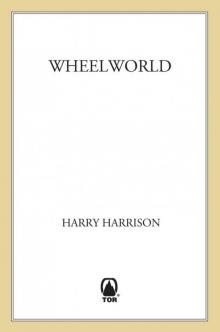 Wheelworld
Wheelworld Winter in Eden e-2
Winter in Eden e-2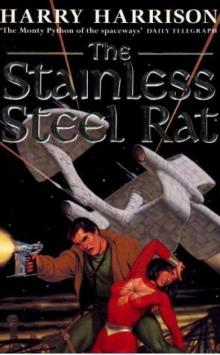 The Stainless Steel Rat
The Stainless Steel Rat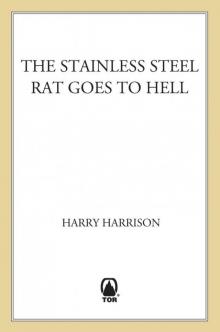 The Stainless Steel Rat Goes to Hell
The Stainless Steel Rat Goes to Hell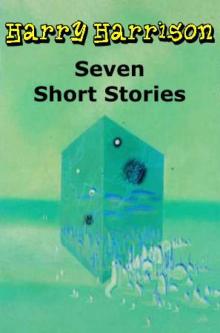 Harry Harrison Short Stoies
Harry Harrison Short Stoies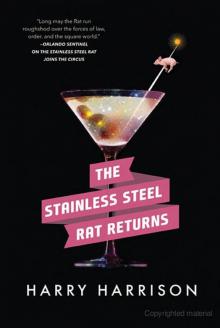 Stainless Steel Rat 11: The Stainless Steel Rat Returns
Stainless Steel Rat 11: The Stainless Steel Rat Returns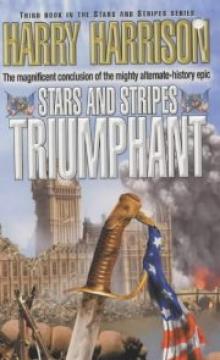 Stars and Stripes Triumphant sas-3
Stars and Stripes Triumphant sas-3 West of Eden
West of Eden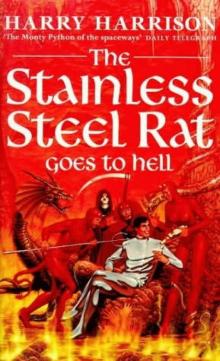 The Stainless Steel Rat Go's To Hell
The Stainless Steel Rat Go's To Hell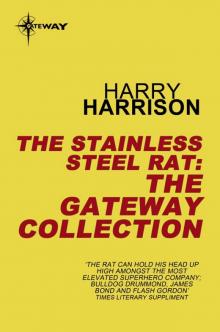 The Stainless Steel Rat eBook Collection
The Stainless Steel Rat eBook Collection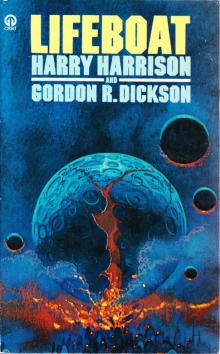 Lifeboat
Lifeboat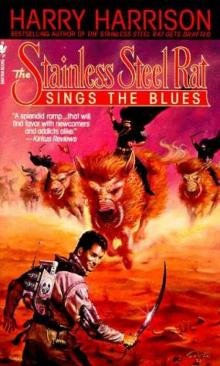 The Stainless Steel Rat Sings the Blues
The Stainless Steel Rat Sings the Blues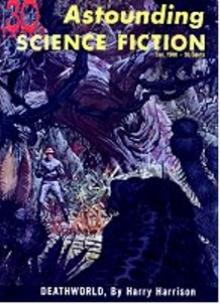 Deathworld tds-1
Deathworld tds-1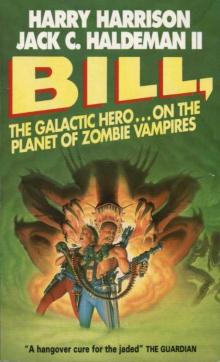 On the Planet of Zombie Vampires
On the Planet of Zombie Vampires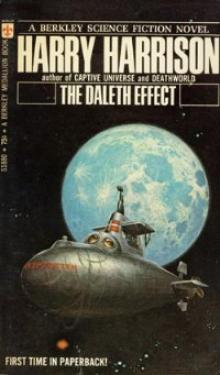 The Daleth Effect
The Daleth Effect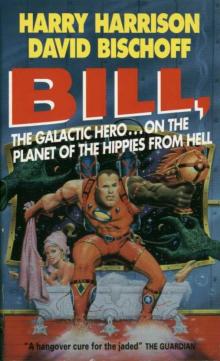 On The Planet Of The Hippies From Hell
On The Planet Of The Hippies From Hell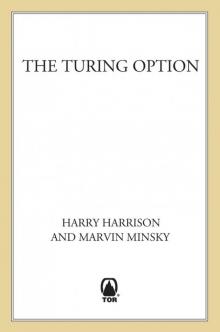 The Turing Option
The Turing Option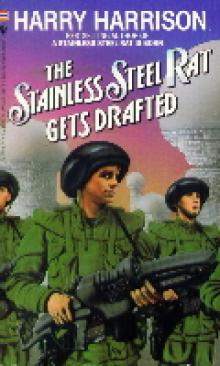 The Stainless Steel Rat Gets Drafted
The Stainless Steel Rat Gets Drafted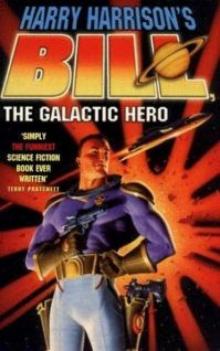 Bill, the Galactic Hero btgh-1
Bill, the Galactic Hero btgh-1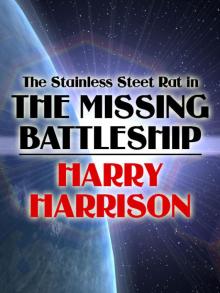 The Stainless Steel Rat in The Missing Battleship
The Stainless Steel Rat in The Missing Battleship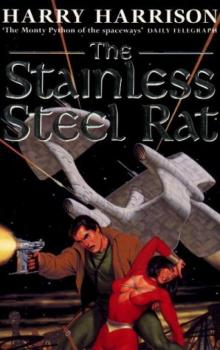 The Stainless Steel Rat ssr-1
The Stainless Steel Rat ssr-1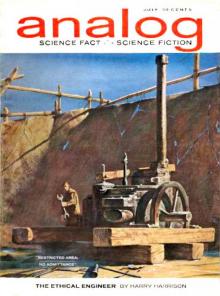 The Ethical Engineer (the deathworld series)
The Ethical Engineer (the deathworld series)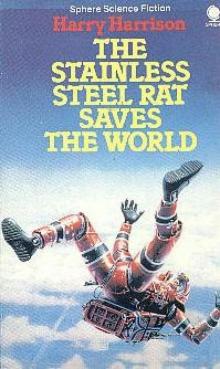 The Stainless Steel Rat Saves the World ssr-3
The Stainless Steel Rat Saves the World ssr-3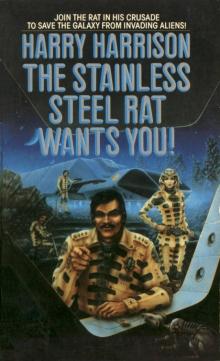 The Stainless Steel Rat Wants You
The Stainless Steel Rat Wants You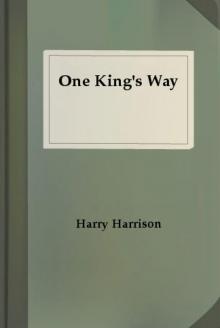 One King's Way thatc-2
One King's Way thatc-2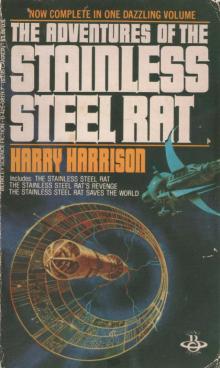 The Stainless Steel Rat Saves The World
The Stainless Steel Rat Saves The World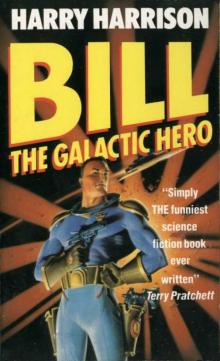 Bill, the Galactic Hero
Bill, the Galactic Hero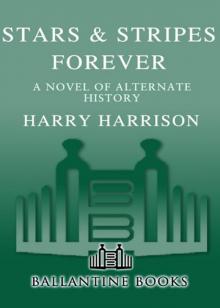 Stars & Stripes Forever
Stars & Stripes Forever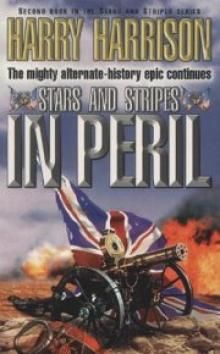 Stars and Stripes In Peril sas-2
Stars and Stripes In Peril sas-2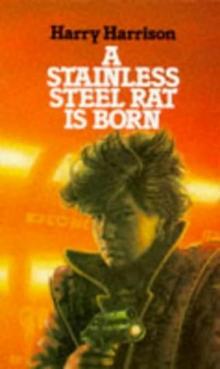 A Stainless Steel Rat Is Born ssr-6
A Stainless Steel Rat Is Born ssr-6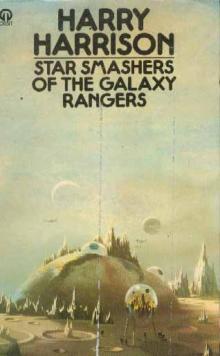 Star Smashers of the Galaxy Rangers
Star Smashers of the Galaxy Rangers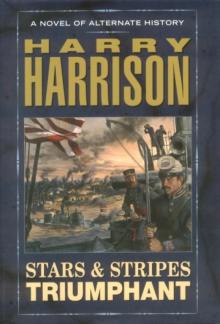 Stars & Stripes Triumphant
Stars & Stripes Triumphant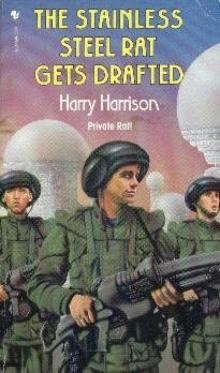 The Stainless Steel Rat Gets Drafted ssr-7
The Stainless Steel Rat Gets Drafted ssr-7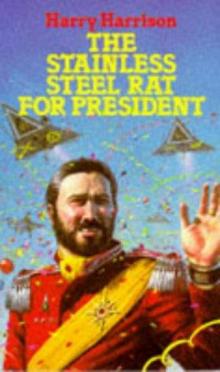 The Stainless Steel Rat for President ssr-5
The Stainless Steel Rat for President ssr-5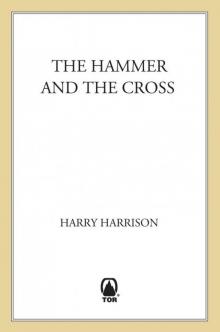 The Hammer & the Cross
The Hammer & the Cross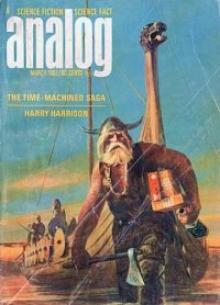 The Technicolor Time Machine
The Technicolor Time Machine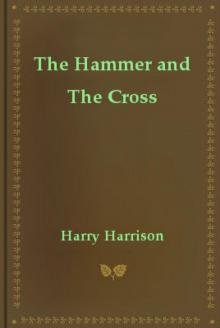 The Hammer and The Cross thatc-1
The Hammer and The Cross thatc-1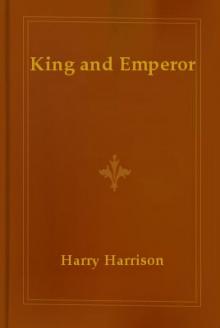 King and Emperor thatc-3
King and Emperor thatc-3 Return to Eden
Return to Eden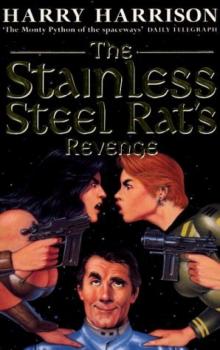 The Stainless Steel Rat’s Revenge ssr-2
The Stainless Steel Rat’s Revenge ssr-2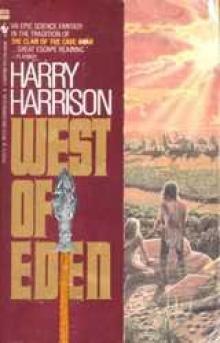 West of Eden e-1
West of Eden e-1 Return to Eden e-3
Return to Eden e-3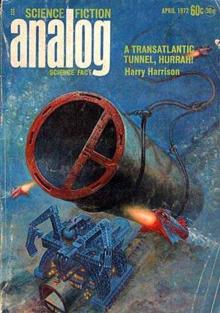 A Transatlantic Tunnel, Hurrah!
A Transatlantic Tunnel, Hurrah!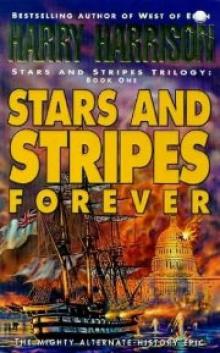 Stars and Stripes Forever sas-1
Stars and Stripes Forever sas-1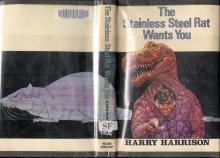 The Stainless Steel Rat Wants You ssr-4
The Stainless Steel Rat Wants You ssr-4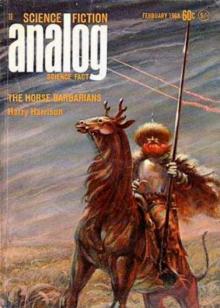 The Horse Barbarians tds-3
The Horse Barbarians tds-3 Planet of the Damned and Other Stories: A Science Fiction Anthology (Five Books in One Volume!)
Planet of the Damned and Other Stories: A Science Fiction Anthology (Five Books in One Volume!)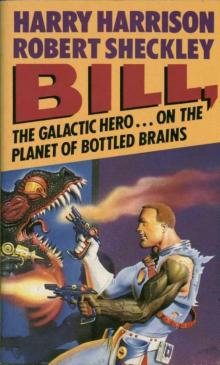 On the Planet of Bottled Brains
On the Planet of Bottled Brains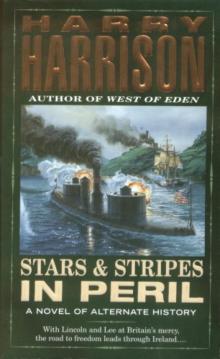 Stars And Stripes In Peril
Stars And Stripes In Peril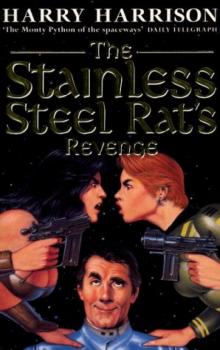 The Stainless Steel Rat's Revenge
The Stainless Steel Rat's Revenge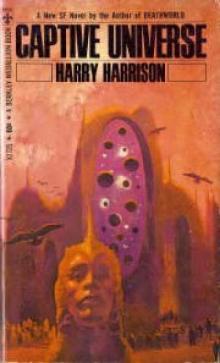 Captive Universe
Captive Universe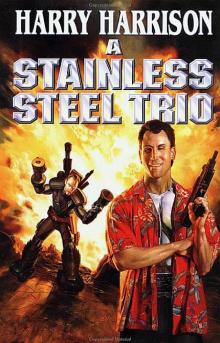 The Stainless Steell Rat Sings the Blues ssr-8
The Stainless Steell Rat Sings the Blues ssr-8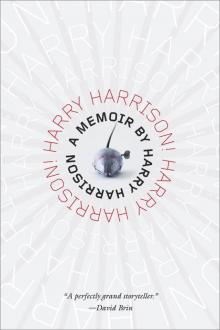 Harry Harrison! Harry Harrison!
Harry Harrison! Harry Harrison! Winter in Eden
Winter in Eden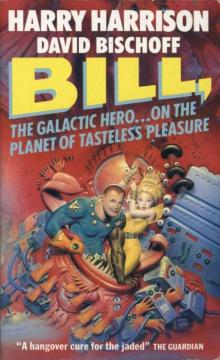 On the Planet of Tasteless Pleasures
On the Planet of Tasteless Pleasures